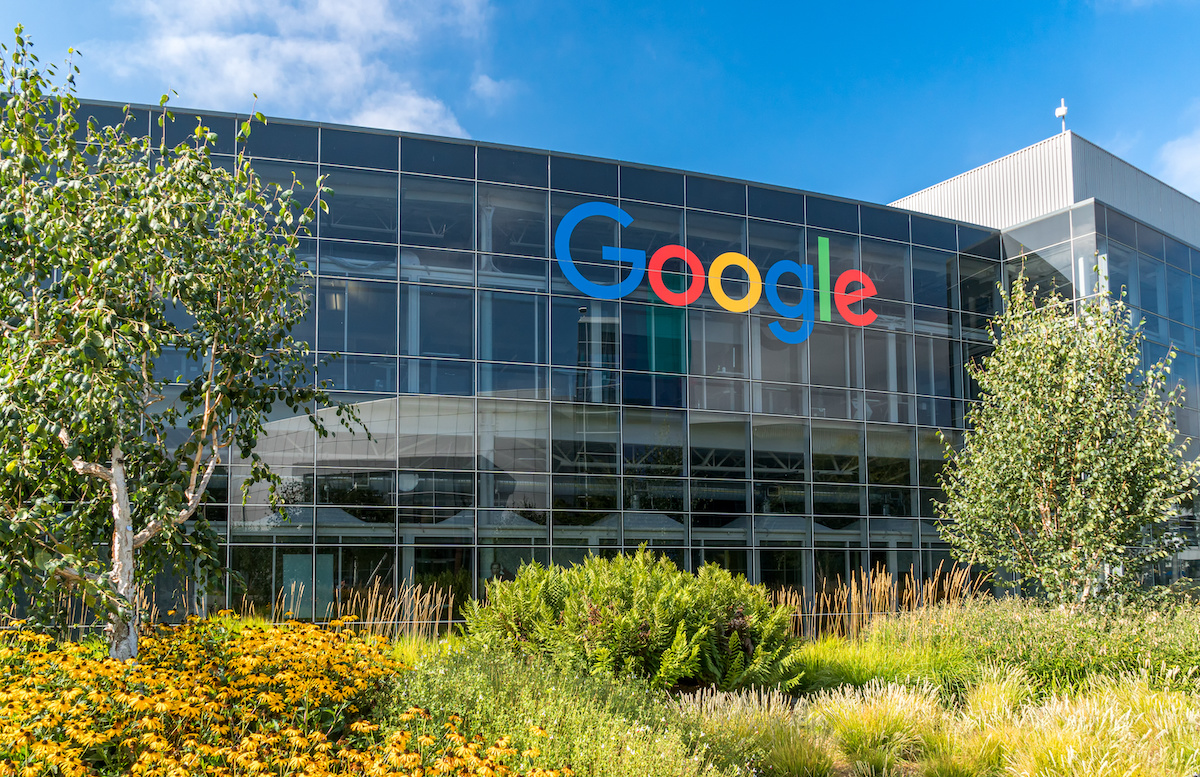Poodle Takes On Google
California Bends the Knee to Social Media Giant

My brain woke me up at 3:30 this morning. I didn’t want to be awake. But it insisted. “You’d be better off as a pygmy mammoth,” it told me. “You know that?” it only pretended to ask.
As usual, my brain got it right.
Yes, pygmy mammoths went extinct about 13,000 years ago after having enjoyed unfettered free reign over the combined land mass of the Channel Islands when they were still one big island. In fact, these creatures — one-half the height of full-fledged mammoths, whose shoulders stood roughly 17 feet off the ground — existed no place else on the planet.
Right now, genetic engineers are pioneering a new science known as de-extinction engineering, whereby the genomes of species long extinct are re-sequenced into living, beathing beings.
A company calling itself Colossal Biosciences — no hubris involved there — is working hard to reintroduce the full-sized woolly mammoth. Bad idea. Have you ever pissed one of those creatures off? I’d suggest the cuter pygmy model — less potential for damage if things go wrong.
What actually was happening at 3:30 a.m.? My brain was despairing over the fate of my chosen profession.
Yet another well-intentioned effort to save newsrooms from the parasitic ravages of social media had just flamed out — spectacularly and ignominiously — in Sacramento, where good ideas, it seems, go to die agonizing deaths.
For those of you holding an actual newspaper, you are reading what’s derisively described as a “fossil media.” Based on the numbers, the shoe sadly fits. Between 2005 and 2023, one-third of California’s news organizations, print and online, shut down. In this time, 68 percent of all state reporters lost their jobs.
In this reality, I experience survivor’s guilt because I’m one of the lucky ones to still have a job.
Last week, everything blew up in Sacramento. The two bills hatched to help save newsrooms flamed out, and the reporters — and the public — that those bills would have protected got sold out. Governor Gavin Newsom wasn’t willing to go to the mat, and Google — whose monopolistic founder Sergey Brin makes $42 million an hour — rolled the state.
Brin takes home this kind of pay because his search engines — highly efficient and well-designed — charge advertisers for appearing in the same screen frame as news articles pirated from their producers with zero compensation.
For the second year in a row, legislators in Sacramento sought to rectify the problem, this time introducing two separate bills that would do different things. For the second year in a row, they failed miserably, this time because of threats made by Google and invisible intercessions made on Google’s behalf by Governor Gavin Newsom.
The first bill to bite the dust would have generated $500 million to $1 billion a year by imposing a data extraction mitigation tax on companies such as Facebook and Google; the proceeds — real money, by the way — would have gone to underwriting the costs of hiring new reporters by companies attempting to stay in the news business.
Newsom balked at anything that could be construed as a tax; the bill was dead on arrival.
The other bill, introduced by Assemblymember Buffy Wicks, was eviscerated beyond recognition. It’s now an “agreement,” not a bill. It might still pass, but the terms are so nebulous as to be all but unenforceable.
On its face, the Wicks proposal would lead you to expect that $250 million will be spent over a five-year period — $178 million by Google — and some portion of that would trickle down into new newsroom hires. When you translate the fine print, it’s a gift horse into whose mouth you should look closely.
In actual new money, it’s $55 million over five years Google will spend on new reporters. Google will also agree to continue spending $10 million a year for five more years on existing newsroom programs. As part of the package, $70 million will come out of the state budget over the next five years to help underwrite ailing newsrooms. Last I looked, the state doesn’t have $70 million to, in effect, subsidize Google, which was just found guilty in a Washington, D.C., courtroom of monopolistic business practices a month ago.
In that ruling, the judge frequently alluded to the $26 billion — yes that’s billion with a capital B — Google spends a year protecting its monopoly by paying companies like Apple to make Google the default search engine for all gadgets that connect us to the world wide web.
Given that Google enjoys a 90 percent market saturation — hence, the ubiquitous exclamation “Google that shit” or “GTS!” — one might conclude it’s effectively impossible for any other company to hope to compete. That’s called monopoly. And it’s against the law. That doesn’t scare Google, which will spend the next five years fighting this in court.
It spends $26 billion a year to maintain its monopoly.
It spends $42 million an hour to compensate the company’s founder.
But a measly $55 million for California newsrooms.
Another key detail in California’s so-called agreement: Google will spend $68 million a year on something known as its “Artificial Intelligence Accelerator” project. There’s no doubt AI is a research tool of staggering potential, but it’s also true that reporters have good reason to fear it will cost them their jobs.
Why should you care?
Once upon a time, Santa Barbara had around four reporters covering the courts and trials. Admittedly, we were trolling for salacious details. But along the way, we also illuminated the quality of justice — race, poverty, inequality, and mental health — dispensed by our courts.
But this week, I found out, only by happy accident, that a trial involving Plains All American Company — found criminally guilty of the Refugio pipeline spill of 2015 — and Venoco — a smaller oil company that spill put out of business — had been under way for more than a week.
All this begs the bigger question: What else are we missing?
It all matters. Everything matters.
If it matters to you, too, please go to independent.com/support and donate to the Independent so our reporters can stumble quicker and more adroitly onto news stories big and small.
Selfishly, I’d like to still be here when the pygmy mammoths come back. And I wouldn’t mind sleeping past 3:30 either.
Premier Events
Sat, Dec 21
11:00 AM
Santa Barbara
Mosaic Makers Market – Holiday Weekend Market
Sun, Dec 22
11:00 AM
Santa Barbara
Mosaic Makers Market – Holiday Market Finale
Wed, Dec 25
6:00 PM
Santa Barbara
FREE Contra Dance X-mas Day💃Corwin & Grace band6-9
Sat, Dec 21
11:00 AM
Santa Barbara
Mosaic Makers Market – Holiday Weekend Market
Sat, Dec 21
12:00 PM
Santa Barbara
Gift Wrapping with Life Chronicles
Sat, Dec 21
2:00 PM
Santa Barbara
State Street Ballet’s 30th Anniversary Production of ‘The Nutcracker’
Sat, Dec 21
4:00 PM
Santa Barbara
Wine + Painting Workshop
Sat, Dec 21
5:00 PM
Santa Barbara
The Rhythm Industrial Complex: Live at Fox Wine Co
Sat, Dec 21
5:00 PM
Santa Barbara
LET IT GLOW Winter Solstice on State St.
Sat, Dec 21
5:15 PM
Santa Barbara
The Longest Night Memorial
Sat, Dec 21
5:30 PM
Santa Barbara
First United Methodist Church Living Nativity
Sat, Dec 21
6:00 PM
Santa Barbara
Captain Fatty’s Ugly Xmas Sweater Party
Sat, Dec 21
6:30 PM
Santa Barbara
Ugly Sweater Singles 30s and 40s Party!
Sat, Dec 21 11:00 AM
Santa Barbara
Mosaic Makers Market – Holiday Weekend Market
Sun, Dec 22 11:00 AM
Santa Barbara
Mosaic Makers Market – Holiday Market Finale
Wed, Dec 25 6:00 PM
Santa Barbara
FREE Contra Dance X-mas Day💃Corwin & Grace band6-9
Sat, Dec 21 11:00 AM
Santa Barbara
Mosaic Makers Market – Holiday Weekend Market
Sat, Dec 21 12:00 PM
Santa Barbara
Gift Wrapping with Life Chronicles
Sat, Dec 21 2:00 PM
Santa Barbara
State Street Ballet’s 30th Anniversary Production of ‘The Nutcracker’
Sat, Dec 21 4:00 PM
Santa Barbara
Wine + Painting Workshop
Sat, Dec 21 5:00 PM
Santa Barbara
The Rhythm Industrial Complex: Live at Fox Wine Co
Sat, Dec 21 5:00 PM
Santa Barbara
LET IT GLOW Winter Solstice on State St.
Sat, Dec 21 5:15 PM
Santa Barbara
The Longest Night Memorial
Sat, Dec 21 5:30 PM
Santa Barbara
First United Methodist Church Living Nativity
Sat, Dec 21 6:00 PM
Santa Barbara
Captain Fatty’s Ugly Xmas Sweater Party
Sat, Dec 21 6:30 PM
Santa Barbara

























